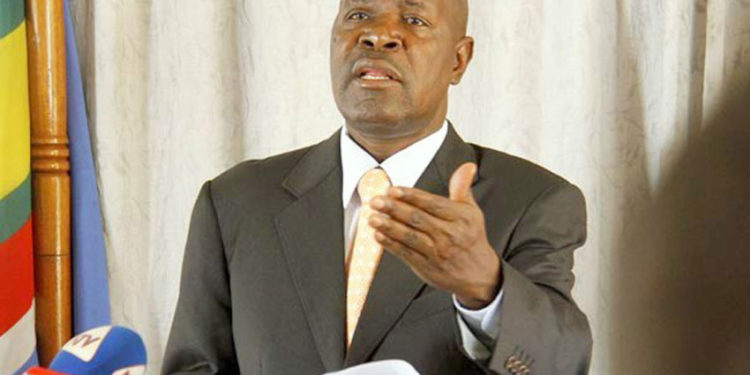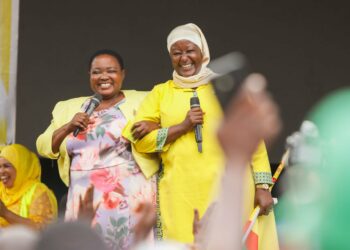Over the decades brave and committed Ugandans have made the leap of faith sometimes paying the ultimate price with their lives to liberate and develop Uganda so we can enjoy today’s tranquility. Often, we are made by human circumstances to helplessly submit or stand and fight. Uganda’s post independence political turmoil before the advent of the NRM in 1986 is well documented and doesn’t need repeating. Yesterday Ugandans paid tribute to those who shed blood for Uganda’s liberation and causing renaissance from the political tyranny that had engulfed her for a quarter of century since independence in 1962.
We remember among others people like Edidian Mukiibi Luttamaguzi brutally killed by UNLA soldiers on 9th June 1981 because he was collaborating with the National Resistance Movement (NRA) guerrillas led by Yoweri Museveni in today’s Luwero Triangle. As the day broke, Luttamaguzi was home relaxing but later learnt that government soldiers, the UNLA had besieged his village to crack down on Museveni suspected contacts. Hajji Musa Sebirumbi, then ruling UPC chairman of Luwero South Constituency, guided soldiers through Kikandwa village, Semuto, in Luwero District to identify suspected NRA collaborators and Luttamaguzi was dragged out of his house and killed in a futile attempt so he could disclose Museveni’s whereabouts.
We also honour countrymen accused of being FRONASA collaborator, the precursor of the NRA executed publicly on President Idi Amin’s orders in 1973. It was the period when hundreds of high profile Ugandans-a Chief Justice, University Vice Chancellor, several ministers and other professionals were killed in broad-day light, arrested and disappeared without a trace or people executed by firing squad at public squares.
These included among others Tom Masaba and Sebastian Namirundu shot in Mbale town, William Nkoko and Ntale in Jinja town, and Amos Obwona and John Labeja in Gulu. Malibo and Phrases Kasolo in Fort Portal, David Tusingwire, James Karuhanga nicknamed Muharaabu in Mbarara town, and James Karambuzi and Joseph Bitwali in Kabale Town.
Museveni and his comrades resolved that they must fight to liberate Uganda in early 1970s, and over the years have crossed many rivers of blood. It is due to their sacrifices that today Ugandans are speaking of prosperity and not the fear of a national nightmare of torture and extra judicial killings. They chose to forego their own personal comfort and ambitions when confronted with events that affected almost everyone alive then.
They could have chosen to remain focused on their private battles, disregarding what was going on around Uganda, but instead dared to walk, when there was neither promise nor guarantee of glory, honour, medals or remembrance. Many of the heroes and victims buried in unmarked or unknown graves around Uganda are a reminder that perhaps never again should Ugandans face extrajudicial state inspired brutality, torture, imprisonment and assassination, and are exemplars of velour. Let us therefore not take the freedom for granted, let the peace not lull Ugandans into complacency, and tranquility shouldn’t become boring.
Yes, there are those who say that peace and stability hasn’t brought them jobs or wealth they want, but they should remember president Mwalimu Julius Kambarage Nyerere words, “Unity and peace will not make us rich, but it can make it difficult for Africa and the African peoples to be disregarded and humiliated. And it will, therefore, increase the effectiveness of the decisions we make and try to implement for our development. My generation led Africa to political freedom. The current generation of leaders and peoples of Africa must pick up the flickering torch of African freedom, refuel it with their enthusiasm and determination, and carry it forward.”
Let these powerful words by one of Africa’s foremost heroes serve as a reminder especially to our youths, a reminder that we’ve only won half the battle. The second phase of the struggle now requires similar levels of sacrifice, selflessness, commitment and focus that the first struggle demanded. The peace and economic progress hasn’t been handed to us on a silver platter. It is being earned with the currency of blood. Continued economic emancipation will also require that leaders tame their selfish ambition for quick personal wealth accumulation.
Every Uganda should endevours to become a socio-economic hero or heroine in their respective communities and disciplines in the selfless footsteps of those that we are honour today, so that Uganda’s future generations may also bestow recognition. Because of continued peace and stability, Uganda continues to prosper. The size of our economy is now estimated to be Shs. 162.1 trillion equivalent to US Dollars 45.7 Billion. Uganda’s GDP per capita today stands at US Dollars 1,046 in current prices, which is equivalent to Uganda Shs. 3.7 million per person per year with annual economic growth averaging 6.1% since 1986.
The buoyant economic growth even in the Covid19 backdrop means that government can do more to lift many Ugandans still in subsistence livelihoods out of poverty into commercial activities and sustained prosperity through the many initiatives like the Parish Development Model (PDM) being implemented throughout countrywide.
Do you have a story in your community or an opinion to share with us: Email us at editorial@watchdoguganda.com













